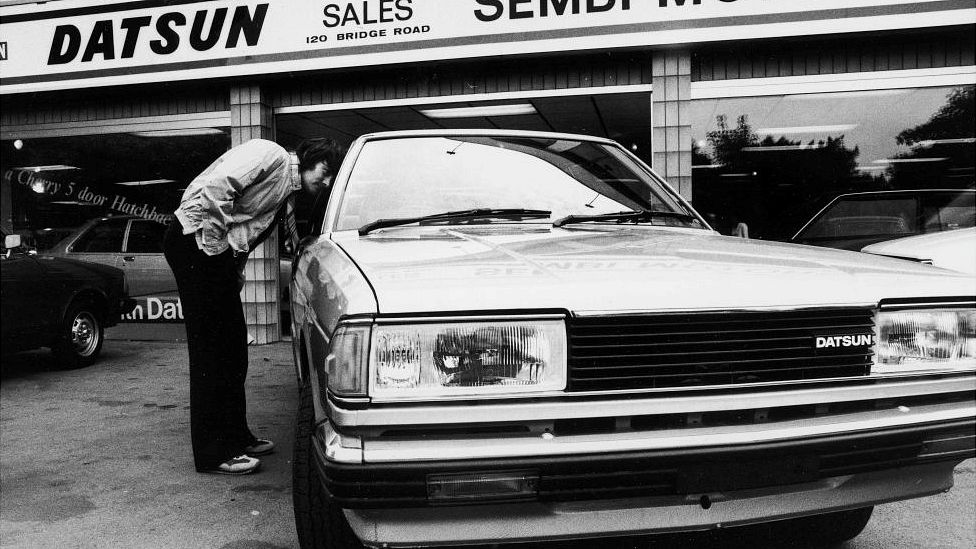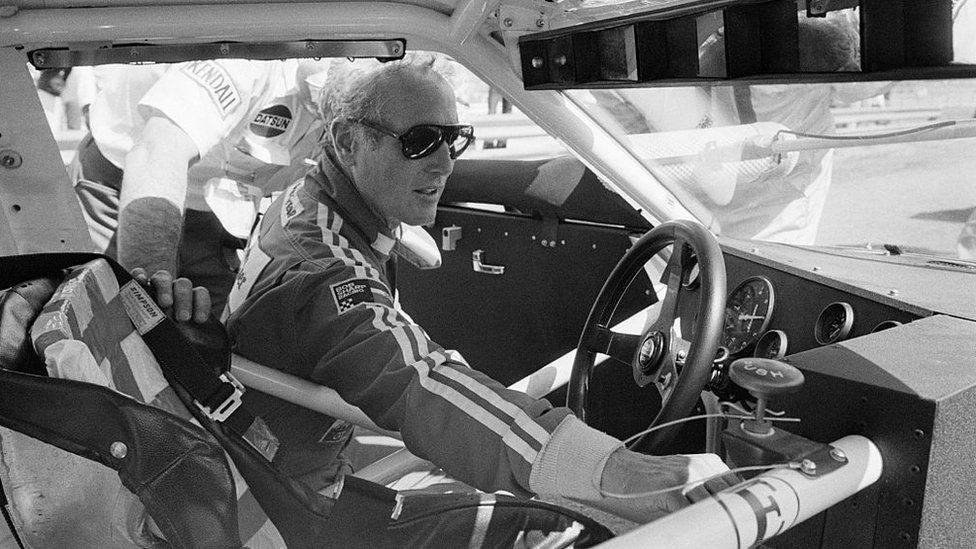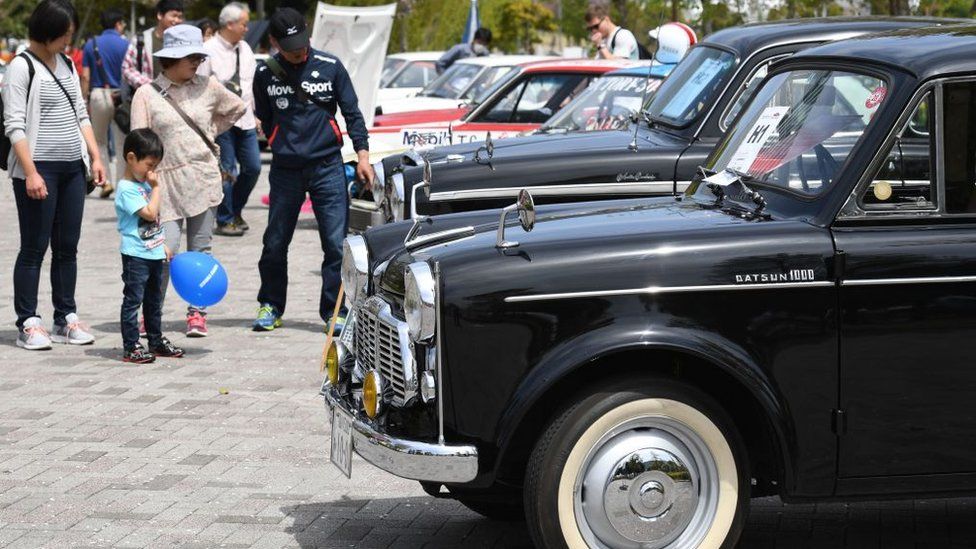Nissan signals the end of the road for Datsun cars - BBC News
Car maker Nissan is to stop producing vehicles under the Datsun name, which has a more than century-long history.
It was one of the brands that helped Japanese car makers become established globally after the Second World War.
Despite selling millions of cars around the world, the Datsun name was phased out in the 1980s.
The company revived the brand three decades later, describing the new range of vehicles as "an important part of Nissan's DNA".
On Monday, Nissan spokesperson Azusa Momose told the BBC that the firm will continue to sell its stock of Datsun cars and provide aftersales services to their owners.
"We can reassure all existing and future Datsun owners that customer satisfaction remains our priority," she added.
 IMAGE SOURCE,GETTY IMAGES
IMAGE SOURCE,GETTY IMAGES
Before the Datsun brand name came into being, a car named the DAT was built in 1914 by the Kaishinsha Motorcar Works in Tokyo.
The word DAT was an acronym of the family names of three early investors in the business: Den, Aoyama and Takeuchi. It also literally means 'lightning fast' in Japanese. At the same time, it was promoted as Durable, Attractive and Trustworthy, or DAT for short.
In 1933, Nissan's founder Yoshisuke Aikawa took over the business.
The early 1930s also saw the company launch an economical and lightweight car named "DAT-son" or "the son of DAT". The name was subsequently changed to "Datsun".
 IMAGE SOURCE,GETTY IMAGES
IMAGE SOURCE,GETTY IMAGES
Datsun was one of the brands that helped Japanese car makers establish themselves in Europe, the US and Asia after World War II.
It was one of the main brands Nissan marketed globally, besides the mainstream Nissan and the luxury Infiniti.
In the 1970s, the fuel-efficient Datsun was marketed as the choice of the everyday motorist looking for an alternative to unreliable gas-guzzlers. Around 20 million Datsun cars were sold in 190 countries across the world.
However, the name was phased out from 1981, with Nissan becoming the company's primary brand globally.
In 2012, Nissan announced the return of the Datsun brand and sold cars under the name in countries including India and Indonesia.
At the time, like many rival car manufacturers, Nissan faced weak markets in Europe and the US and was targeting emerging economies with lower priced models. Despite this, sales of the models have slumped in recent years.
Nissan said on Monday that it will now focus on "core models and segments that bring the most benefit to customers, dealer partners and the business" as part of a global transformation strategy.
 IMAGE SOURCE,GETTY IMAGES
IMAGE SOURCE,GETTY IMAGES




Recommended Comments
There are no comments to display.
Create an account or sign in to comment
You need to be a member in order to leave a comment
Create an account
Sign up for a new account in our community. It's easy!
Register a new accountSign in
Already have an account? Sign in here.
Sign In Now